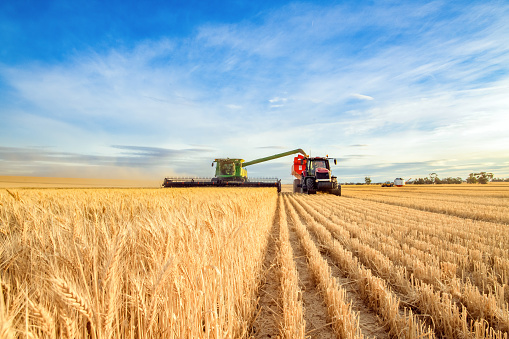Winter cereal production gains momentum
Share

Harare (New Ziana) – A task force comprising the Ministries of Lands, Agriculture, Fisheries, Water and Rural Development and that of Energy and Power Development has been set up to coordinate strategies to ensure the provision of adequate electricity for winter cereal production, a cabinet Minister said on Tuesday.
This is part of efforts to increase the production of cereals to overcome the effects of the El-Nino-induced drought, which the country is facing.
The Zimbabwe government has adopted a deliberate policy to promote the consumption of cereals in place of the staple maize in light of the persistent drought droughts that are being occasioned by climate change.
In a post-Cabinet media briefing, Information, Publicity and Broadcasting Services Minister Jenfan Muswere said his Lands, Agriculture, Fisheries, Water and Rural Development counterpart Dr Anxious Masuka, had updated Cabinet on the winter cereals production plan for 2024.
“The targeted area for planting wheat is 120 000 hectares, with an estimated yield of 5.2 metric tonnes per hectare and estimated production of 624 000 metric tonnes,” he said.
“The targeted area for planting barley is 7 000 hectares, with an estimated yield of 6 metric tonnes per hectare and estimated production of 42 000 metric tonnes. The targeted area for maize/sorghum is 3 250 hectares, with an estimated yield of 3.0 metric tonnes per hectare and estimated production of 9 750 metric tonnes.”
Muswere said the wheat farmer clusters have been submitted to the Zimbabwe Electricity Supply Authority and the Zimbabwe National Water Authority for ring-fencing electricity and water, respectively.
He said the bulk of the winter maize/sorghum will be produced in regions 4 and 5, while potatoes will be planted in winter in warmer areas and during August on the highveld.
“In terms of the supply of water, the Zimbabwe National Water Authority will implement seasonal billing. The 31 percent tariff reduction is yet to be gazetted, but will be backdated in order not to prejudice farmers.
“Farmers on Stop Order facilities will not be charged monthly interest on overdue bills as was the case before. The Zimbabwe National Water Authority will only start charging interest after farmers on Stop Order agreements have been paid,” he said.
Muswere assured farmers of adequate fertilizer from the major manufacturers while winter wheat fuel requirements will be made available through commercial outlets.
The winter cereal production program comes at a time when President Emmerson Mnangagwa recently declared the 2023-24 summer cropping season a national disaster, but said the government’s priority is securing food for all Zimbabweans to ensure no one died of hunger.
Zimbabwe requires US$2 billion for various interventions for the national response and winter cropping is one of the drought mitigation strategies.
New Ziana






